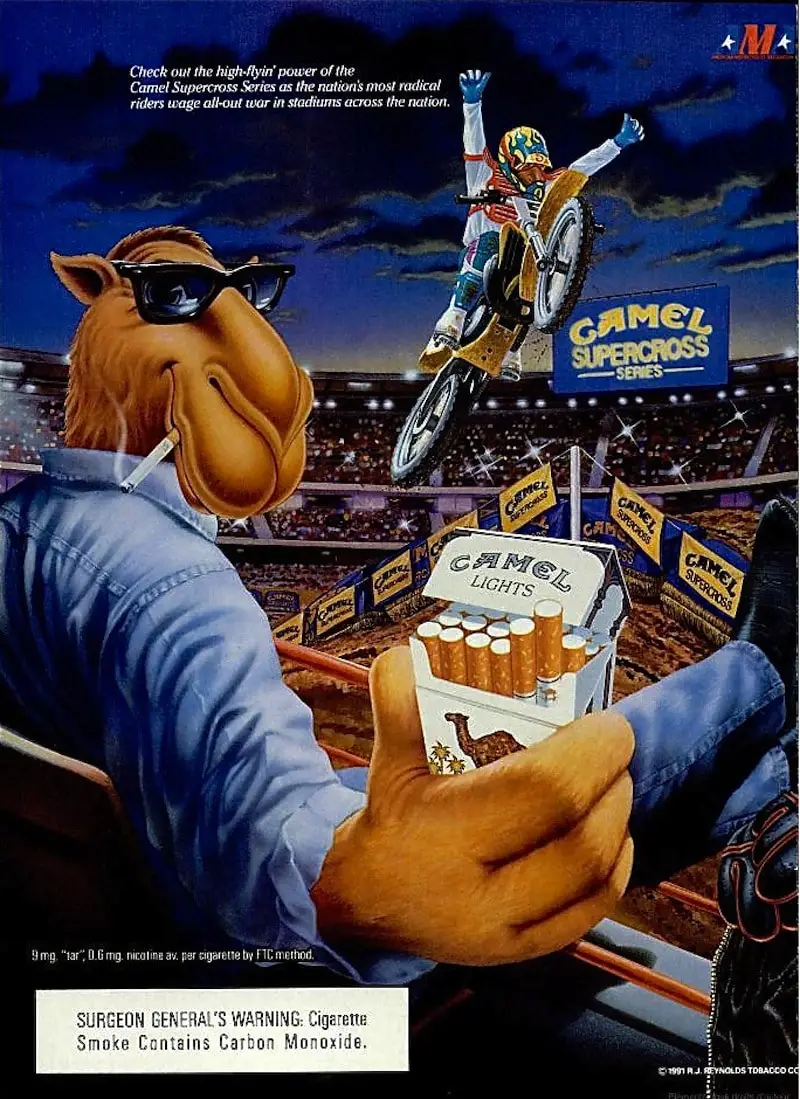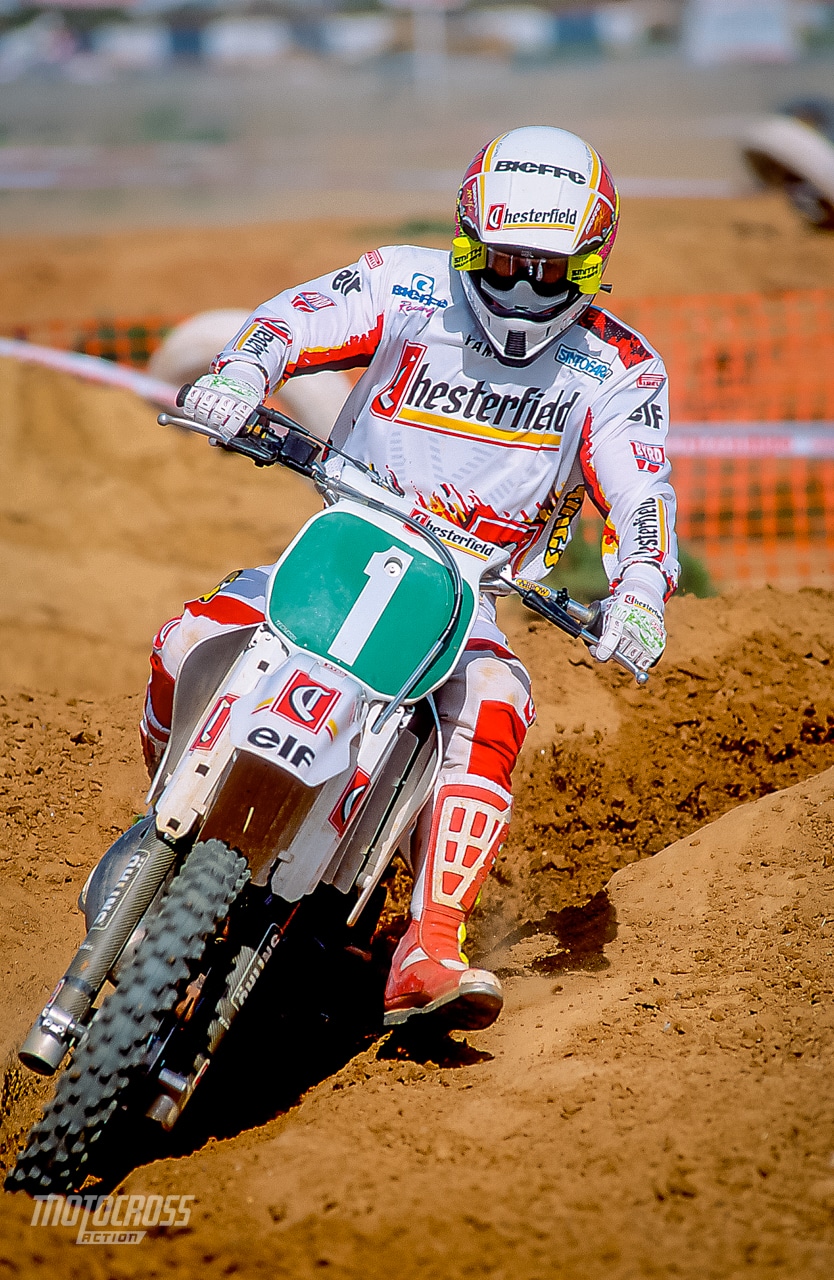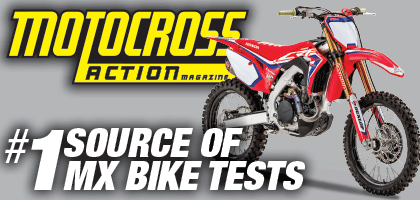ASK THE MXPERTS: WHERE ARE CAMEL, CHESTERFIELD & WINSTON?
 Do you remember Joe Camel? He lives in a retirement home in Palm Springs now.
Do you remember Joe Camel? He lives in a retirement home in Palm Springs now.
WHERE ARE CAMEL, CHESTERFIELD & WINSTON?
Dear MXA,
When I first started racing, there were lots of different teams and rider sponsors, and now we have nothing but energy drinks (Red Bull, Monster, Rockstar and more). We used to have Bud Light, Camel cigarettes, Chesterfield cigarettes, Makita tools and Verizon. What happened to the appeal of our sport that we can’t get any of these sponsors anymore?
You are correct that our sport’s young, active, middle-class demographic should be appealing to movie studios, video game developers, computer companies, smartphone makers, phone companies, tool companies, record labels, truck manufacturers and candy makers. But, we will never see cigarette sponsors ever again. Why? Two reasons:
(1) Back in 1998, the tobacco companies were sued, and in a settlement with the U.S. Attorney General, signed the Master Settlement Agreement (MSA). This limited tobacco companies to “one brand-name sponsorship per year.” In plain English, this meant that cigarette giants R.J. Reynolds (RJR), Lorillard and Philip Morris agreed with the federal government that they would only sponsor one sport a year. Even more paralyzing to the lucrative world of cigarette sponsorship, the 1998 Master Settlement Agreement (MSA) applied to tobacco companies, not cigarette brands. Thus, all of R.J. Reynolds’ brands of cigarettes (Winston, Salem, Camel and Doral) were considered to be under the R. J. Reynolds umbrella. That meant that R.J. Reynolds could only sponsor one sport and could not spread its sponsorship among its individual brands. They were not interested in sponsoring the R.J. Reynolds Supercross Series, because there was no product with the R.J. Reynolds name on it to promote.
 Donny Schmit looked like a cigarette billboard during his Chestfield Yamaha days.
Donny Schmit looked like a cigarette billboard during his Chestfield Yamaha days.
(2) Under the MSA, tobacco companies were also forbidden to sponsor events, sports or teams that appealed to “a significant youth audience.” That slam dunk killed any chance of a cigarette sponsor for motocross or Supercross because of its teen and preteen following. Additionally, cigarette companies could not sponsor events in which the participants were underage. If a 17-year-old were competing in the series, cigarette sponsorship was banned.
Alcohol sponsorship was not banned in 1998, but most of the major motocross teams have studiously avoided “sin sponsors” such as alcohol and cigarette companies (the sanctioning bodies have not always been as socially responsible). The exception was Jeremy McGrath’s Bud Light sponsorship. It, however, caused considerable friction between Jeremy and his motorcycle manufacturer. Beer is not bound by the Master Settlement Agreement, but it has been banned by the social consciousness of the motorcycle manufacturers.
Over the years, the legality of cigarette and alcohol sponsorship has become stricter. As for computers, phones, electronics, movie studios and food makers, the opportunity is still open to any enterprising team.






Comments are closed.